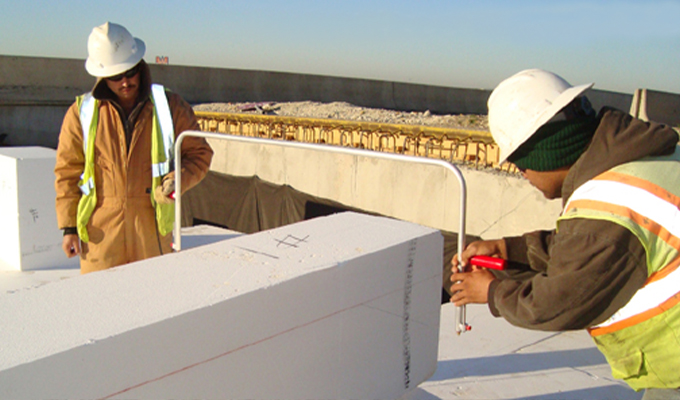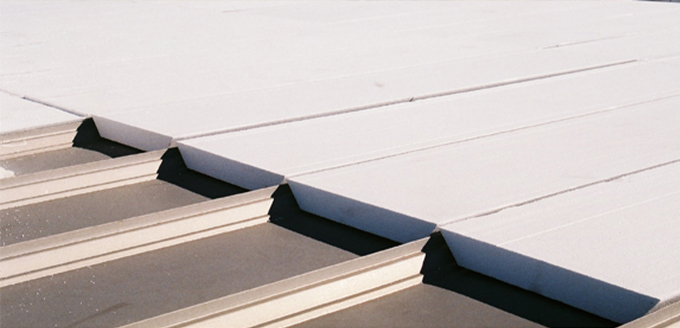Lightweight, incredibly strong, molded polystyrene is commonly used in both building and infrastructure construction yet remains somewhat misunderstood by many industry professionals. Frequently misidentified as Styrofoam™, molded polystyrene is a rigid, closed-cell plastic foam made by expanding polystyrene beads, which are block or shape molded into useable products.
“Molded polystyrene foam is a very strong, efficient material that solves a wide range of commercial construction challenges,” says Dale Mullikin, a national account director for Atlas Molded Products, North America’s largest manufacturer of molded polystyrene products. Some of the confusion surrounding rigid cellular polystyrene materials resides in the product’s versatility. Molded polystyrene is frequently used as both an insulation in walls, roofs, and around building foundations and also as a structural fill, known as geofoam. Though the composition of both insulation and geofoam products is identical, importantly there are two separate designations within the ASTM International standards.
ASTM C578
Most well known as thermal insulation, rigid cellular polystyrene was first tested and published under ASTM C578 “Standard Specification for Rigid, Cellular Polystyrene Thermal Insulation”. Until 2002, all rigid cellular polystyrene fell under C578 when ASTM D6817 was introduced to specifically account for structural applications using geofoam. Problematically, many designers still think of these products exclusively as insulations and should understand that they should be consulting ASTM D6817 when considering structural applications.
“We want to ensure this material’s capacity and versatility are understood, and designers are applying the correct ASTM standard when using it as either insulation or structural fill,” says Mullikin.
ASTM D6817

ASTM D6817 “Standard Specification for Rigid Cellular Polystyrene Geofoam” involves testing the material until it is compressed by only one percent to determine the structural capacity of rigid cellular polystyrene. Conversely, the insulation specification, ASTM C578, compresses the material until it is deformed by ten percent. While D6817defines the material’s indefinite structural loading capacity for use in structural applications, C578 is meant to compare polystyrene foam products including both molded and extruded materials. Atlas Molded Products manufactures across a wide range of C578 and D6817 compressive strengths that begin at 15 psi and scale up to 60 psi. Atlas’ molds geofoam blocks as large as 40” x 72” x 288”, which can be moved by hand, allowing builders to install large structural fill using manual labor. Using hot wire cutters, the blocks are easy to customize to fit around obstacles like pipes or columns.
for more information
For more, visit www.atlasmoldedproducts.com.
Modern Contractor Solutions, August 2020
Did you enjoy this article?
Subscribe to the FREE Digital Edition of Modern Contractor Solutions magazine.



